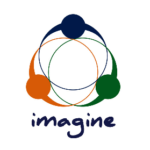Know the Project
The Imagine Project is a project of international solidarity that promotes scientific inclusion and cultural exchange between peoples. Through this project, UFSC, together with its partner institutions, brings fundamental scientific knowledge to communities of different countries with difficult access to formal education and scientific information.
Basic scientific knowledge about ourselves and the universe around us is essential for the construction of citizenship, respect between peoples and dialogue between cultures, towards the eradication of prejudices and the promotion of human development. Young people from ethnic minorities, indigenous groups or simply living in remote rural areas, having to travel long distances or move through difficult terrains to get to school, tend to become stigmatized and with low self-esteem.
To effectively combat this type of exclusion, inclusive actions should transcend formal education, going beyond the school, to the community, the home and the workplace.
Curiosity, the desire to learn and the pleasure of discovery are characteristics common to all human beings, in every culture, at all times and in every corner of the Earth.
– Through knowledge, to expand horizons and present new perspectives of life for youth and adults from remote communities, including students, teachers, leaders or members of the community.
– To contribute to the awakening of scientific curiosity, the preservation of traditional cultures and environments, and the friendship between peoples, promoting a greater understanding (and consequent acceptance) of the differences and similarities between individuals, ethnicities, peoples and cultures.
– To contribute to the harmonious transition between old traditions of the cultural heritage and a scientific view of reality, without opposing or imposing one to the other, but giving a sense of continuity between them.
– Through conviviality and personal interactions between university scientists and students and local community members, to demystify the image of science and scientists and to develop future disseminators of knowledge.
– To bring scientific activities, in a didactic and ludic way, to rural and indigenous communities located in countries of Africa and Latin America.
– To develop educational tools adapted to the target audience of the project, which will be available digitally, in various languages, as Open Educational Resources (OER).
– To offer to the young people of these communities the opportunity to visit research laboratories in one of the partner countries.
– To produce and widely disseminate a series of documentaries about the scientific, cultural and human aspects of the project.
The principles of the Imagine Project are based on interdisciplinarity; on the respect for local cultures; on the increased flexibility of academic structures and on the conviviality between the scientist – who produces knowledge in a context that is traditionally inaccessible to the underprivileged populations – and the citizen deeply connected with his culture and his land. The thematic modules are chosen and presented in order to provide, directly or indirectly, a debate about tolerance and respect, not only among human beings themselves, but also between them and nature, in its broadest sense.
To date, we have developed three thematic modules that have circulated in three communities in Brazil and Peru and are ready to be executed in the other partner countries.













